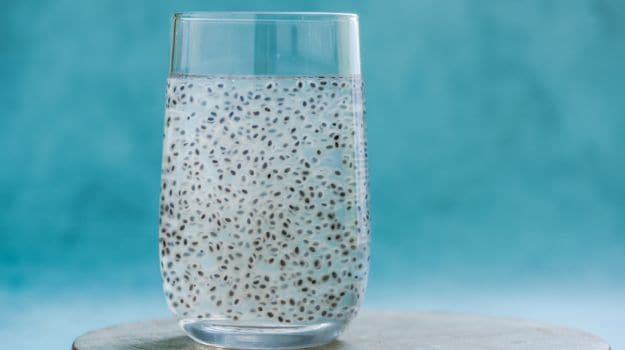What is Black Pepper?
The most common and widely used spice for seasoning throughout the world is pepper. It is delicious and helps enhance the flavor of anything it is sprinkled on. The origins of this berry are as delicious and complex as its flavor. Although it is native to the Malabar region of India, yet the nostrils of Ramses the Great were found filled with it (1303-1213 BC).Proof that it was used in the mummification process.
There is archeological proof that pepper has been in use since 2000 BC and also text has been found that show trade of pepper from India to the Greeks and the Romans. Romans soon started making it a part of almost 80% of its recipes, though Pliny the Elder was not necessarily a fan. After the fall of the Roman Empire, the Arabs took over the spice trade. They wanted to maintain a monopoly in trading pepper and did so by making up fictional stories regarding the procurement of the spice.
Benefits of black pepper
1. Help Fight Depression
Black pepper contains a compound called piperine, which is very beneficial for people suffering from depression. It also helps improves brain functions and helps enhance memory.
There have been studies published in medical journals such as the Journal of food and chemical toxicology. Regular intake of black pepper helped alleviate depression, significantly enhancing brain functionality.
2. Helps with Digestion
The body secretes an acid called the hydrochloric acid, which is essential to the digestion process. Black pepper is known to increase the secretion of this acid, which helps the body to digest food. It helps prevent intestinal gas production and stimulates sweating and urinating, which helps remove toxins from the body. Black pepper is a carminative that promotes good gut health.
3. Nutrient Absorption
Consumption of black pepper helps the body absorb more nutrients from other foods. Using black pepper with fruits, vegetables or any other dish will help the body absorb the nutrients to their full potential.
4. Treating Ulcers
Peptic ulcers are the worst kind and can cause a lot of discomfort to the patient. Black peppers are rich in antioxidants and are anti-inflammatory, which helps soothe peptic ulcers. Black pepper helps strengthen the mucosal defense. It is also found to fight problems that arise due to ethanol.
5. Get Rid of The Extra Pounds
Fat cells need to be broken in order to lose weight. The outer dark layer of peppercorn speeds up the breaking down of these fat cells and helps increase your metabolic rate. This, in turn, leads to weight reduction. Due to its carminative properties, it also helps rid the body of the intestinal gases and reduces bloating.
6. A Cough and Sore Throat Remedy
Black pepper has expectorant properties that help reduce symptoms associated with cough and other respiratory issues. It is often recommended as an ingredient in DIY cough remedies. The best way to use it when you have a bad case of the cough is to add a quarter teaspoon to a tablespoon full of honey, mix thoroughly and eat.
7. Promotes a Healthy heart
Black pepper is often recommended by doctors to add to food for patients suffering from heart diseases. What it does is it removes the cholesterol build up in the arteries. This helps prevent a medical condition called atherosclerosis, which is the main cause of people suffering heart attacks.
8. Soothes Toothaches
Another one of black peppers amazing uses is reducing toothaches and other gum related diseases. As it has antimicrobial and antibacterial properties it prevents the spreading of bacteria in the mouth and can be applied to the painful area mixed with salt.
9. Beneficial in Preventing Gray Hair
Graying hair is an issue that is being faced by many young children as well. Black pepper can be used to prevent this from happening. The recipe is simply to mix a quarter teaspoon of black pepper in half a cup of yogurt. Massage it into the scalp and let it sit for half an hour. Then rinse thoroughly. The regular use of this concoction will have a significant effect.
10. Effective for Arthritis Patients
Black pepper essential oil when applied to the skin has a warming sensation, which helps your blood circulation. It can be used by patients suffering from arthritis to get rid of the pain. It also helps remove uric acid like toxins from the body, which is very harmful to people with arthritis.
11. Black Pepper and Skin
Black pepper is packed full of healthy nutrients for the body. The regular consumption of this spice will help achieve a glowing complexion and happy skin. It can also be used as an exfoliator added to honey or yogurt.
Top 10 Black Pepper Side Effects:
These are but a few of the health benefits of black pepper. But as they say too much of a good thing can be bad too! So is the case with black pepper. Till you control the amount of black pepper intake, all is good. But black pepper can cause some serious and some not so serious side effects, if not taken in moderate quantity. Here’s a list of all that can go wrong with too much black pepper:
1. Creates Burning Sensation In Stomach:
Well, we all know that black pepper is ‘hot’. Common sense tells us that we should limit the use of black pepper in our dishes. But, sometimes common sense takes a back seat! In such a case, the overuse of black pepper can lead to severe burning in the stomach. Don’t worry, the burning will pass, it’s just temporary. Just be careful next time!
2. Can Cause Death:
Now, this is one of those rarest of rare cases. But if pepper is consumed directly, it can get into the lungs and cause death, especially in children. So it is advised to eat black pepper by mixing it with your food.
3. Creates Burning Sensation In Eyes:
Remember black pepper is hot! So avoid applying black pepper directly on your skin.or else accidentally if it gets into your eyes, it may cause burning and redness, both on your skin and eyes.
4. Contraindication With Certain Drugs:
Patients taking cyclosporine A, cholinergic, digoxin, and cytochrome P450 should avoid consuming black pepper.
5. Gastrointestinal Disorders:
Black pepper may upset the stomach or cause gastrointestinal problems. So, patients suffering from gastrointestinal disorders should avoid taking black pepper.
6. May Lead To Respiratory Problems:
One must not inhale black pepper as it may lead to respiratory problems like respiratory irritation, asthma, etc.
7. May Cause Irritation:
In some rare cases, the intake of black pepper can lead to skin irritation with symptoms like itching, swelling, and redness in skin.
8. Difficulties During Pregnancy And Breastfeeding:
If you are pregnant, your body is already sensitive to spices. So try and stay off black pepper. If you are craving the flavor, add some to your favorite dish, but in minimal quantities. The hot flavor and taste of black pepper can be transferred into breast milk. So, unless you want to give your infant a crash course in Indian spices, stay away from black pepper if you are breastfeeding.
9. Increases Skin Dryness:
Black pepper should not be consumed in large quantities as it can dry the skin. If you have dry skin, too much black pepper is certainly a no-no!
10. Avoid During Summers:
Summers are hot, don’t add to it! Black pepper can increase the body heat and can even lead to bleeding noses. So, say no to black peppers during the hot summer months.
If you weigh in the pros and cons of consuming black pepper, the pros will win hands down! The only way black pepper can harm you is if you consume too much of it,which is an unlikely scenario. So, enjoy your favorite spice in moderation!
Did you know about these side effects of black pepper? Do you know any other black pepper side effects? Share with us in the comments section below.














